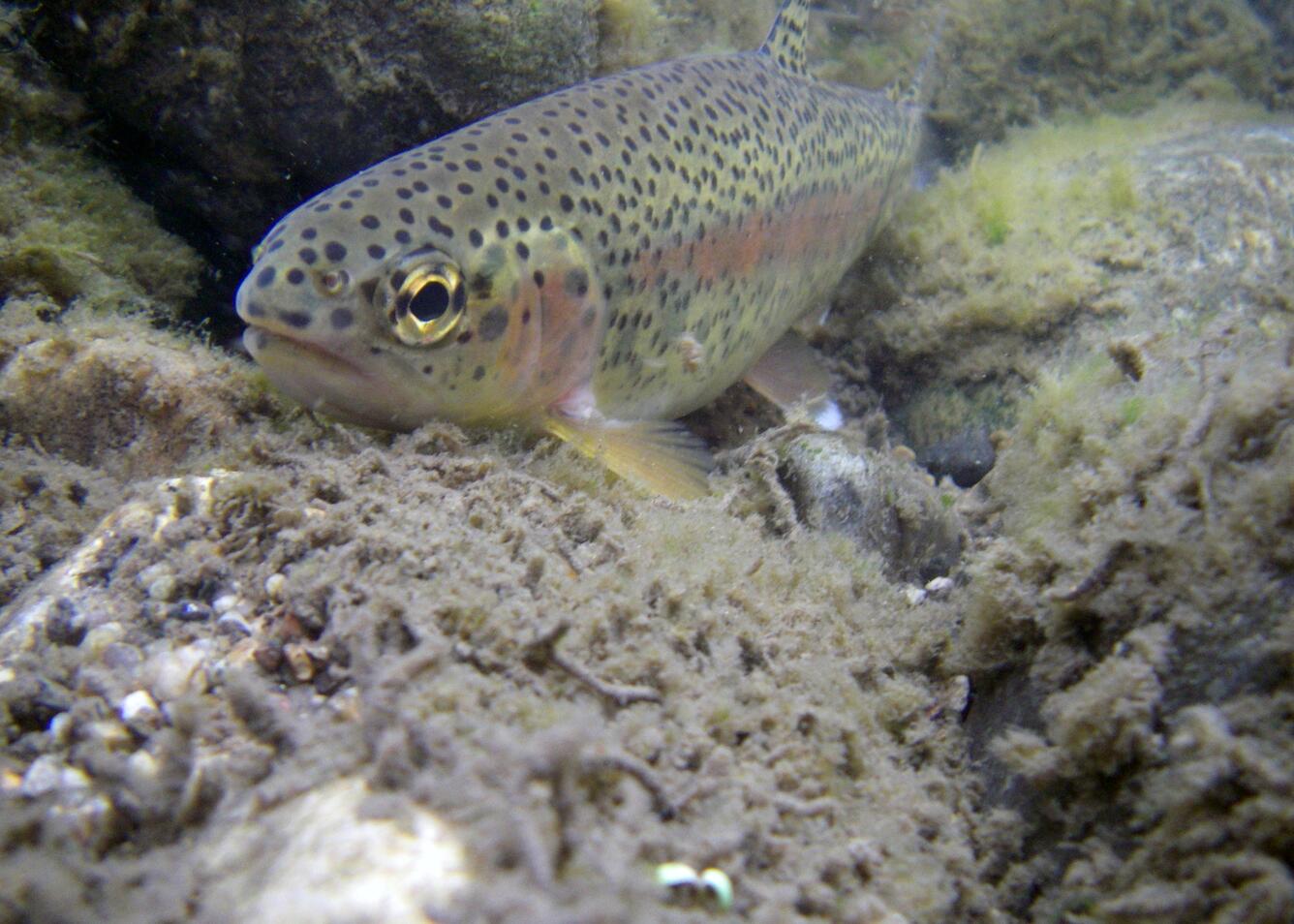EarthWord: Infectious Haematopoietic Necrosis (IHN)
Infectious haematopoietic necrosis (IHN) is an infectious viral disease of salmon and trout.
EarthWords is an on-going series in which we shed some light on the complicated, often difficult-to-pronounce language of science. Think of us as your terminology tour-guides, and meet us back here every week for a new word!
Definition:
- Infectious haematopoietic necrosis (IHN) is an infectious viral disease of salmon and trout.
Use/Significance in the Earth Science Community:
- IHN was first recognized in the 1950s in sockeye and Chinook salmon. The disease has the most economic significance for freshwater farms, however Pacific and Atlantic salmon (Salmo salar L.) in both fresh and seawater have been severely affected.
- Researchers at the WFRC are creating a set of molecular tools by cloning each of the viral genes and sequencing the entire genome. This information is stored in an IHN database. When an IHN virus epidemic occurs, our researchers use molecular genetic methods to characterize the specific virus type, and compare it with other known IHNV types in our database. Similar methods are used for other fish viruses and for epidemics of flu, SARS, and anthrax.
USGS Use:
- WFRC Fish Disease Research Page
- IHNV Fish Virus Database
- USGS Factsheet
- Emerging Virus Threat to Fish in Western Washington
Next EarthWord: Is your water acting up? Talking back maybe? There’s a word for water like that…
Hungry for some science, but you don’t have time for a full-course research plate? Then check out USGS Science Snippets, our snack-sized science series that focuses on the fun, weird, and fascinating stories of USGS science.
Get Our News
These items are in the RSS feed format (Really Simple Syndication) based on categories such as topics, locations, and more. You can install and RSS reader browser extension, software, or use a third-party service to receive immediate news updates depending on the feed that you have added. If you click the feed links below, they may look strange because they are simply XML code. An RSS reader can easily read this code and push out a notification to you when something new is posted to our site.


